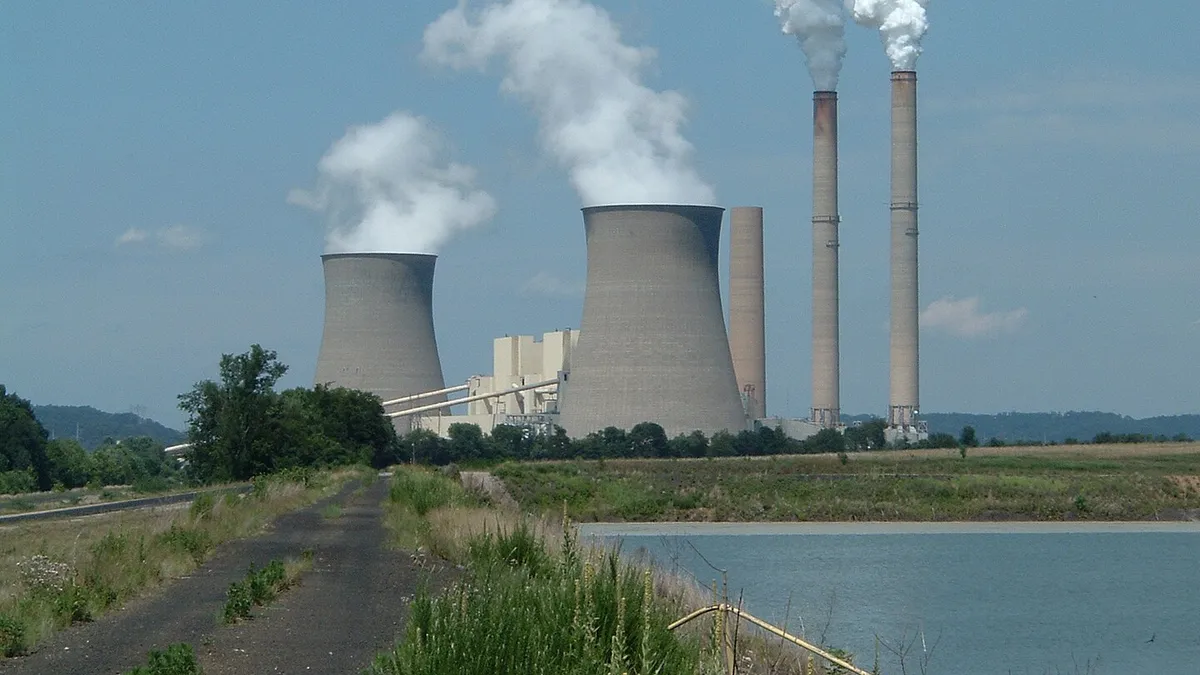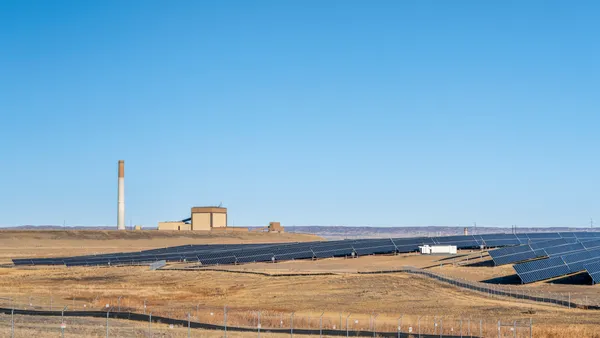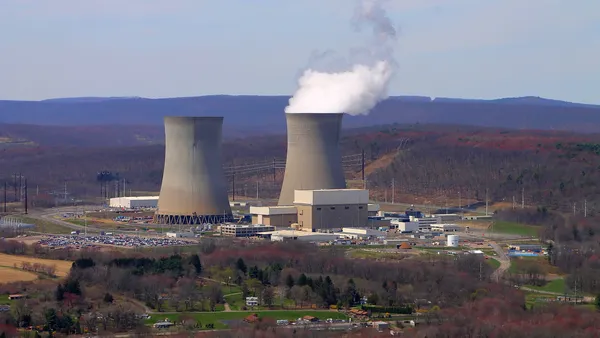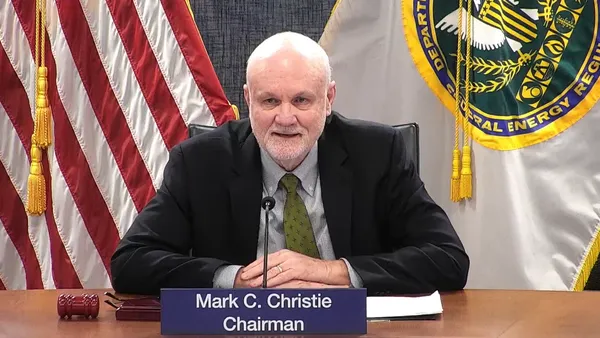Dive Brief:
- The U.S. government's General Services Administration has removed itself from a hearing considering Exelon Corp.'s proposed $6.8 billion bid to acquire Pepco Holdings despite previous opposition to the deal, the Washington Post reports.
- Observers say GSA's departure likely means an easier path to approval for the deal, as the government agency charged with paying the federal power bill had been one of a few critics with a formal spot in the proceedings.
- The GSA, in a blog post, says it remains concerned with the potential impacts of the Exelon-Pepco merger on U.S. taxpayers, and will continue "to advocate in the best interest of the taxpayers."
- A second round of hearings into the proposed merger was held this week; D.C. regulators nixed the deal in August, but a settlement with Mayor Muriel Bowser's office breathed new life into the proposal to form the largest utility in the country.
Dive Insight:
The GSA purchases power for federal buildings and had been one of the leading skeptics of the Exelon-Pepco merger before backing out of the proceedings this week. With it gone, the Post reports the acquisition could have an easier path to approval.
The agency raised concerns about the merger approval process in October, but then missed a key deadline for comments on the merger settlement last month. When hearings kicked off this week, the agency said it would not be providing testimony.
The agency, for its part, said in a blog post on Thursday that D.C. regulators did not give GSA enough time to vet the settlement agreement before reopening the merger proceeding.
"GSA proposed a longer timeframe for consideration to allow all parties to review the terms of the agreement. This request was also echoed by other parties in the process, but was not granted (See the Commission’s response)," the post reads. "As a consequence, GSA did not have sufficient time to properly consider and submit testimony."
Opponents of the merger had found an ally in the GSA, which had considered pushing for a rate freeze that could have passed on millions in savings to federal taxpayers.
“It’s shocking that the GSA stopped having an opinion about this terrible merger at the very last moment,” Mike Tidwell, director of the Chesapeake Climate Action Network, told the Post.
“GSA leaving — this has just killed us,” said Anya Schoolman, founder of the Community Power Network and a prominent merger opponent.
Washington, D.C. regulators rejected Exelon's initial merger proposal in August, citing an "inherent conflict of interest" between Exelon's business model and the city's clean energy goals.
Soon after, Mayor Muriel Bowser's office reached a settlement with the companies that could help push the deal through. But even as a decision nears, more controversy is appearing. Groups opposed to the deal have called for an investigation of Bowser's decision, saying it appears closely related to the timing of a $25 million contribution that Pepco made to the District government to help offset costs to build a new stadium for D.C. United, the city's Major League Soccer team. They also question whether Exelon was asked to contribute to a now-shuttered pro-Bowser political action committee, a charge the company has been unwilling to confirm or deny.
The Post reports GSA's decision to exit the proceeding was preceded by phone calls and text messages between the mayor's chief negotiator on the deal, Tommy Wells, and GSA officials interested in a microgrid project the merger would push forward.
“I put something in there, I tried to get something in there for everybody,” Wells told the Post. “I told them we could prioritize you for one of these microgrids."
Editor's note: This post has been updated from the original version to reflect comments from the GSA.















